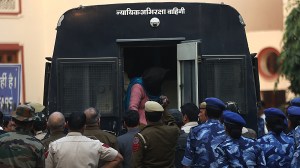Role of a successful captain defies all theories
Captaincy in cricket is vastly different from other games. Despite the latest trend of having cricket managers/coaches/psychologists to b...

Captaincy in cricket is vastly different from other games. Despite the latest trend of having cricket managers/coaches/psychologists to boost the team morale, the most important person for any cricket team in the final analysis is none other than the captain himself.
The role of a successful cricket captain defies all theories. In practice, he must possess the leadership qualities of a military general; the diplomatic acumen of a foreign minister; the ruthlessness of a dictator; the tenderness of a nurse and above all, he must have cricket ability which ensures him of a place in the side. Only then can he earn the respect of his colleagues.
The two most outstanding captains of our times have been Richie Benaud and the late Sir Frank Worrell. I got to read a lot about their achievements and felt greatly inspired in my formative years. I have also admired the intellectual genius of Mike Brearley; the ruthless efficiency of Ray Illingworth and the tough grind of Imran Khan. Since, Tiger Pataudi was my firstskipper in Tests, I used to observe his nonchalant approach. His greatest asset was his exceptional keenness to bring about togetherness in a multi-lingual/religious collection of players.
Though many may differ with my opinion, I strongly believe that Tiger was the best thing to have happened to Indian cricket. I don’t think he had the best ever Indian team with him but by sheer daring, he managed to get the best out of the lot available to him. A more selfless Indian captain is hard to imagine. Admittedly, he was too young and naive when he was thrown in the deep sea. By the time Tiger was able to shed his English background and get familiar with Indian manipulations, a casting vote showed him the door.
Against this background, when I assess Mohammed Azharuddin’s amazing continuity at the helm, I wonder how the Hyderabadi became the Hobson’s choice at the first place. “Why do so many players want to be the captain?” the English spinner, Derek Underwood once asked Mike Brearley, who was quick toremark: “An interesting sociological question, Derek.” Mike went on,“It is more agreeable to tell others what to do than to be told so. We prefer stimulation to mental inactivity.” There are also those who, as Ranji expressed in his Jubilee Book of Cricket — “grow grey in the service of the game and are astonishingly ignorant about it.”
Azhar’s great belief that “Allah de aur banda le” (God gives and man receives) is the very anti-thesis of “God helps those who help themselves.” But, to give Azhar his due, he has to his credit quite a few wins under his belt, which the “Man of Destiny” would have the world believe as sheer providence. Of course, the element of luck is vital in any walk of life, ever so more in cricket.
However, the Peter Principle remains that some people are inevitably promoted beyond their spheres of excellence. Azhar really has just about managed to keep abreast with any sales manager. But, I am not too sure if he has managed to win the respect of hiscolleagues. Or, even kept his own self-respect intact.
If we concede that captaincy is ninety per cent luck and ten per cent ability (Richie Benaud’s dictum), Azhar would struggle to qualify simple because his record away from the sub-continent is pretty abysmal. Even his staunchest supporter would bear testimony to this cruel fact.
What is it then which determines a good cricket captain?
(To be concluded)



- 01
- 02
- 03
- 04
- 05




























